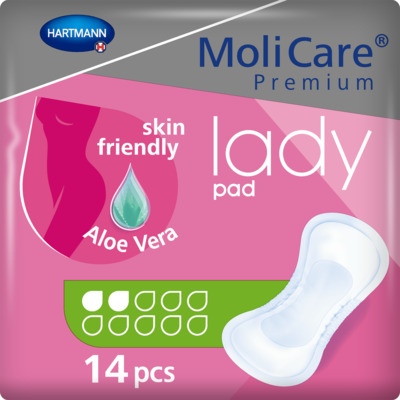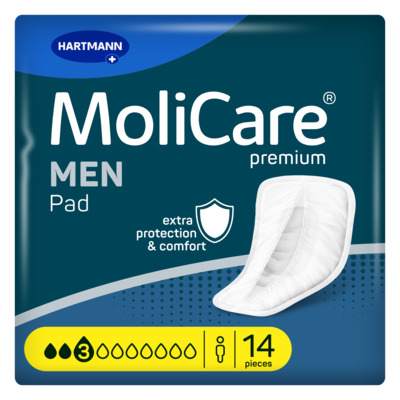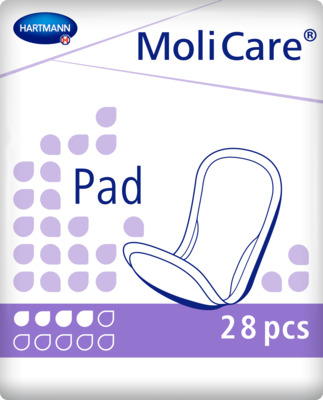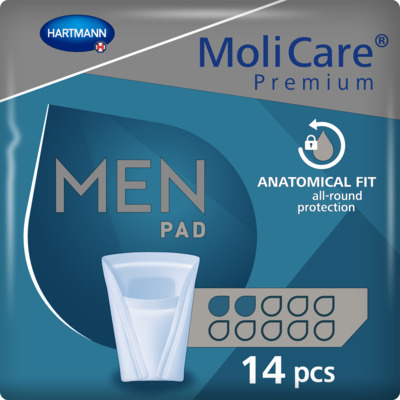Active living
Frequent Urination - An Inconvenience Or A Sign of Something Worse?
Experiencing an increased need to urinate can be both inconvenient and concerning. While often linked to high fluid intake or caffeine consumption, persistent frequent urination could signal underlying health issues such as urinary tract infections, diabetes, or kidney disease. In this article, we will explore the common causes, potential health implications, and management strategies for frequent urination. Understanding these factors can help you address symptoms and seek appropriate medical care when necessary.

What is frequent urination?
Frequent urination is defined as the need to urinate more often than usual, to the extent that it disrupts daily activities and sleep patterns. It's not just about the volume of fluid intake; it often involves the urge to pass urine frequently, even if only small amounts of urine are passed each time.
Frequent urination can be a symptom of various underlying conditions. It can affect anyone but is often more common in women due to anatomical differences. Understanding the cause of the frequent urination is crucial to effectively addressing this inconvenient condition.
How many times a day should you pass urine?
Normal urinary frequency varies from four to eight times a day, with up to one occurrence at night. However, factors like fluid intake, age, and overall health can influence this. Maintaining a bladder diary can help track changes and facilitate discussions with healthcare providers about unusual urinary patterns or concerns. You can learn more in our guide on how many times a day you should wee.
Common causes of frequent urination
Numerous factors might cause you to urinate more frequently than usual. A common reason is consuming more than the recommended 1.5 litres (about 6-8 cups) of fluid daily, especially when these include beverages that are high in caffeine, such as coffee, tea, cola, energy drinks, or alcohol.
Please see further information about - foods and drinks that irritate the bladder. This increased need to urinate can be a day-long issue or even occur at night, (known as nocturnal enuresis).
However, a persistent increase in urination should not be overlooked as it may indicate a more serious health condition. Prolonged frequent urination could be a symptom of health issues such as urinary tract infections (UTIs), kidney disease, diabetes, certain types of cancer, or urinary incontinence.
You should seek medical advice if your frequent urination:
Is not justified by the amount of liquids you consume.
Starts to disrupt your daily routine.
Accompanies other concerning symptoms like pain, fever, changes in urine colour to red or dark brown, or a loss of bladder control.
Use our incontinence bed protection products to effectively handle nighttime leakages effectively.
However, if the need to urinate frequently cannot be explained by fluid intake alone, it may be indicative of health issues such as:
Urinary tract infections (UTIs): Often causing an urgent need to urinate, UTIs are bacterial infections that affect different parts of the urinary system.
Diabetes: Both type 1 and type 2 diabetes can cause frequent urination as the body attempts to rid itself of unused sugar.
Pregnancy: Increased urination is common in pregnancy due to the growing foetus pressing on the bladder.
Urinary incontinence: A loss of control over the pelvic floor muscles, leading to difficulties in holding on to urine for a period of time, causing urine to leak out as it is produced.
Overactive bladder: This condition involves an involuntary contraction of the bladder muscle, leading to sudden urges to urinate.
Prostate issues: In men, an enlarged prostate can press against the urethra and restrict the flow of urine, causing frequent trips to the toilet.
Medications: Various medications can provoke the need to urinate. Learn more about these medications that can cause you to pee more often.
Incontinence can tie into each of these issues. Learn about them below:

Common conditions linked to frequent urination
Let's look at the main conditions linked to frequent urination in further detail.
Pregnancy
During pregnancy, frequent urination is a common experience. As early as the first trimester, many women may notice an increased need to urinate due to hormonal changes. Later in the pregnancy, the growing foetus exerts pressure on the bladder, resulting in decreased bladder capacity, which can lead to an increased frequency of urination.
Diabetes
Increased urination can also be a sign of both type 1 and type 2 diabetes. In people with diabetes, the body's inability to use insulin leads to high blood sugar levels, which prompts the kidneys to produce more urine to flush out the excess sugar. This process can cause the production of an abnormally large volume of urine, which is known as polyuria, and it typically results in larger volumes of urine compared to other causes of frequent urination.
Enlarged prostate
In men, an enlarged prostate (or benign prostatic hyperplasia) can press against the urinary tract, restricting the flow of urine from the bladder. This can cause an intermittent and weak flow, leading to more frequent trips to the toilet. This condition is usually non-cancerous but is a significant concern for men and anyone with a prostate.
Why do I have a sudden urgency to urinate?
The sensation of needing to urinate frequently can be troubling and disruptive. It's important to distinguish between the 'urge' to urinate—a regular feeling of needing to go—and 'urgency,' which is a more intense and immediate need that may lead to incontinence if not addressed quickly. The former can be influenced by diet, hydration levels, and medication such as diuretics, which removes excess fluid from the body and increases urine production to manage blood pressure.
However, experiencing urgency indicates potential underlying conditions that require medical consultation, such as bladder spasms. If you have noticed leakages, make sure to follow our guidance on why you may be leaking urine and what is urge incontinence.
When is frequent urination a sign of something more serious?
While often benign, frequent urination can be a symptom of more severe health issues, such as:
Chronic conditions: Such as diabetes, interstitial cystitis, or neurological disorders that affect bladder control.
Prostate issues: In men, an enlarged prostate can impede urine flow, increasing frequency.
Certain cancer treatments: Though less common, these can affect urinary frequency and urgency.

Frequent urination: Treatment methods
Addressing the cause of frequent urination involves a combination of lifestyle adjustments, therapeutic techniques and diagnostic tests, such as:
Monitoring fluid intake: Adjusting the type and timing of fluid consumption can reduce symptoms.
Bladder training: Techniques like timed voiding can help manage bladder capacity.
Pelvic floor exercises: Strengthening pelvic muscles through exercises such as Kegels or Pilates supports better bladder control.
Diagnostic tests: Such as a urine test to check for a urine infection, diabetes or pregnancy.
When to seek medical advice
You should consult a healthcare provider if changes in urination patterns are accompanied by other symptoms such as pain, fever, or unusual urine characteristics, such as blood in the urine, cloudy urine, or if the urine has an offensive smell. If frequent urination affects your quality of life or comes with weight loss, pain, or fever, a professional evaluation is necessary.
Temporary, frequent urination without other symptoms often doesn't pose a health threat. However, it’s advisable to seek medical advice if:
You urinate more than eight times per day or frequently wake up at night to use the bathroom.
You experience severe symptoms like fever, vomiting, back or side pain, blood in the urine, or unusual discharge.
Prompt medical attention can lead to early diagnosis and treatment, improving outcomes and quality of life. If you're concerned about incontinence or changes in your urinary habits, remember that resources and support are available to help manage symptoms effectively and maintain a comfortable lifestyle.
Easing Concerns About Frequent Urination
In conclusion, frequent urination is a common occurrence, often caused by changes in fluid intake, lifestyle habits, pregnancy or medication. Fortunately, there are ways to manage and prevent it. If symptoms persist, it is advisable to consult your healthcare professional to determine the underlying cause.

FAQs
Why is urine frequency more common in women?
Many urinary issues are more common in women due to anatomical differences. For example, a shorter urethra increases the risk of infection. Additionally, pressure on the bladder during pregnancy, weakened pelvic floor muscles from childbirth, along with age-related changes during the menopause collectively make women more susceptible to urinary frequency than men.
Why do I pee so much even when I don't drink anything?
Frequently without high fluid intake could be caused by an overactive bladder, the body's response to certain medications, or conditions like diabetes or urinary tract infections that affect how the body processes urine.
Is frequent urination a sign of diabetes?
Frequent urination can be a sign of diabetes as high blood sugar levels cause the kidneys to work harder to filter excess sugar from the blood. This process leads to an increase in urine production.
Ulrich, A., (2024) Peeing More Often? These 11 Medications Can Cause Frequent Bathroom Trips. Good RX Health. [online] Available at: https://www.goodrx.com/drugs/side-effects/medicines-that-can-make-you-pee [accessed 04/06/2024]
Fowler, P., (2023) Polyuria (Excessive Urine Production) WebMD. [online] Available at: https://www.webmd.com/diabetes/polyuria-too-much-urine [accessed 04/06/2024]

MoliCare® Premium Lady Pad 2 Drops
<h2>Skin Friendly Pant Liners</h2> <p>For women that experience slight incontinence and bladder weakness, across different age groups, it can be a challenge to find the right bladder weakness product that is easy to apply and wear without the worry of potential leakages. Fortunately, we understand this approach, hence why we are happy to offer our MoliCare® Premium Lady Pad 2 drops, that is skin-friendly, Aloe Vera applied, and comes with 14 liners per bag.</p> <h2>Slim and discreet liners</h2> <p>Whether dealing with stress incontinence or urge incontinence, these panty liners offer a discreet and easy solution on the go. Simply place the pad in your underwear and secure it with the adhesive strip for all-round protection. Available in different absorbency levels, MoliCare® bladder weakness products cater to all levels of bladder weakness, ensuring secure care.</p> <h2>Control Bladder Weakness</h2> <p>Enjoy the benefits of these body-shaped absorbent panty liners, designed for women with bladder weakness. The pads offer discreet, reliable protection with features including odour control and fast absorption.</p> <p>With a wide adhesive strip, you can comfortably fix the pad in your regular underwear, providing secure and comfortable fixation. The pads are skin-friendly, featuring soft, breathable materials, including foam cuffs, and a top sheet treated with Aloe Vera.</p> <p>Keeping your skin healthy is a priority, which is why MoliCare® Premium Lady Pads have a skin-neutral pH value of 5.5 and an antibacterial finish. They are also dermatologically tested, offering peace of mind.</p> <h2>Buy pant liners online</h2> <p>Never worry about running out with our convenient order service and fast delivery direct to your door. Enjoy free shipping on orders over £50.</p> <p>If you need assistance, our professional customer service team is here to support you in choosing the right product. Reach out to us today at 0800 028 9470 and experience the comfort and reliability of MoliCare® Premium Lady Pads.</p>
MoliCare® Premium Men Pad 3 Drops (ISO 441ml)
<p><strong>Reliable and discreet incontinence pads for men with an instant-dry feeling</strong></p> <p>Bladder weakness is difficult to live with, the last thing you want to worry about is incontinence protection. That’s why our best-ever MoliCare® premium MEN Pad 3 drops offer an <strong>all-round protection</strong> that keeps everything dry and comfortably in place while fitting discreetly in your regular underwear.</p> <p>The incontinence pad for men quickly <strong>removes urine from the surface up to 86 %* faster than before</strong> and neutralises unpleasant odours to leave you feeling instantly dry and in control thanks to the new <strong>MoliCare SkinGuard</strong>®<strong> Absorbent Core Technology</strong>. This skin-friendly technology not only helps you feel up to 90 %* drier than previous MoliCare® premium<strong> </strong>MEN pads, it also helps to maintain healthy skin and preventing irritation.</p> <p><strong>Engineered for the male anatomy</strong> and dermatologically tested for maximum skin compatibility, these male urinary pads do not contain colour, perfume or latex making them environmentally friendly too.</p> <p>*Compared to last generation</p>
MoliCare® Pad 4 Drops
<h2>Handy MoliCare incontinence pads to carry on the go</h2> <p>Our MoliCare® Pad 4 Drops are an essential product for those experiencing slight incontinence, allowing you to regain control and live your busy and active life without the interference of bladder weakness. Designed for both men and women, this incontinence pad for men and women offers exceptional dryness and protection, ensuring your comfort and confidence.</p> <h2>‘Barely There’ Reassurance and Reliability</h2> <p>The MoliCare® Pad 4 Drops are slimline, discreet, and adjusted to fit your body seamlessly. It fixes securely inside your underwear, providing a ‘barely there’ comfort feel. With its soft and skin-kind fabric, along with a wide adhesive fixing strip on the backsheet, you can go about your day with the assurance of being protected against leakages.</p> <p>The absorbent core effectively prevents your skin from becoming too moist, while the elastic anti-leak edging adds an extra layer of security and peace of mind. Say goodbye to any worries about odours, as the MoliCare® Pad 4 Drops also neutralises odours to keep you fresh and confident throughout the day. Don't let incontinence hold you back from living life to the fullest.</p> <p>Ordering your MoliCare® Pad 4 Drops is hassle-free, as we offer fast delivery direct to your door. With our price match promise, you can trust that you're getting the best value for your money. Plus, enjoy free delivery on all orders over £50.</p> <p>If you need assistance in finding the perfect incontinence product for your needs, our friendly customer care team is here to help. Don't hesitate to reach out to us at 0800 028 9470. Take control of your life with the reliable protection and comfort of the MoliCare® Pad, alongside other <a href="https://www.hartmanndirect.co.uk/incontinence-products/incontinence-pads" style="color:#0563c1; text-decoration:underline">incontinence pads</a>.</p>
